MercoPress. South Atlantic News Agency
Tag: Argentine Central Bank
-
Wednesday, July 17th 2019 - 22:19 UTC
Argentina's inflation expected to stay on the downpath in July
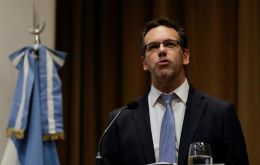
Argentine Central Bank President Guido Sandleris Tuesday admitted inflation remains “high,” but he forecast July's figures will be smaller than those of June in light of the current “clear trend” to the downside.
-
Wednesday, May 8th 2019 - 12:54 UTC
IMF mission arrives in Argentina: Central bank policy, inflation and revenue in the agenda

A new IMF mission is expected in Argentina this e Wednesday for the fourth review of the country's economic plan which is supported by a 36 month stand-by credit from the multilateral financial institution. It's the first IMF visit since Argentina's Central Bank major strategy change in the foreign exchange market to avoid another meltdown of the Argentine currency.
-
Friday, March 15th 2019 - 08:48 UTC
Argentine inflation in February, 3.8% and 51% in twelve months; central bank new measures
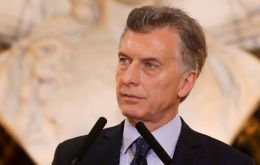
Argentina’s stubbornly high inflation accelerated again in February, the government said on Thursday, sparking the central bank chief to pledge new measures to rein in rising prices that have dogged the South American economy over the last year.
-
Friday, January 11th 2019 - 08:43 UTC
Argentine forex market volatility: Central bank intervenes to prop the dollar, first time in seven months
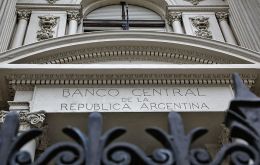
Argentina’s Peso closed stronger on Thursday, but remained outside the limits of a trading band set by the central bank after it intervened in the market by buying US$ 20 million.
-
Monday, December 3rd 2018 - 06:42 UTC
China boosts Argentina's foreign reserves with a US$ 9 billion currency swap
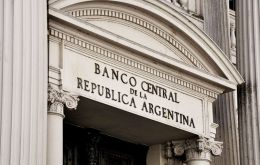
China and Argentina signed a US$ 9 billion currency swap agreement to boost the South American country’s foreign currency reserves, its central bank announced on Sunday.
-
Thursday, October 18th 2018 - 07:36 UTC
Argentina with a record 6.5% inflation in September, and 40.5% in twelve months

Argentina says that consumer prices rose 6.5% in September bringing the twelve month inflation rate to 40.5%, one of the world's highest. The inflation rate published by the official statistics agency Indec, on Wednesday follows a sharp devaluation of Argentina's currency. The nine month rate reached 32.4%.
-
Thursday, September 27th 2018 - 05:45 UTC
IMF and Argentina concord on 36-month US$ 57bn stand-by agreement
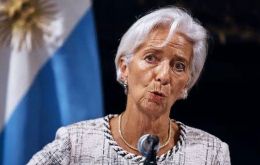
The International Monetary Fund staff and Argentina authorities have reached an agreement on a set of strengthened economic policies that will underpin the 36-month Stand-By Arrangement (SBA) approved on June 20, 2018.
-
Tuesday, September 25th 2018 - 19:04 UTC
Argentine Central bank governor resigns for personal reasons: Peso slides 5% against the US dollar

The governor of Argentina's central bank, Luis Caputo resigned on Tuesday for personal reasons, the bank said in a statement, a surprise announcement in the midst of the country's talks with the IMF that sent the peso tumbling. Former finance minister Caputo has only held the role since June and is the second Argentine central bank president to resign this year. Argentina's peso currency slid 4.65% to open at 39.15 per U.S. dollar after the announcement, traders said.
-
Tuesday, September 25th 2018 - 06:59 UTC
“Zero chance” Argentina will default on its debt next year, Macri tells bankers and investors
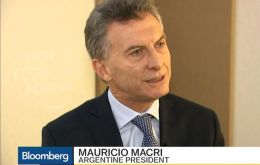
President Mauricio Macri said on Monday that Argentina was close to a deal with the International Monetary Fund to bolster a US$ 50 billion credit line, while a government source said US$ 3-US$ 5 billion in additional funds could be announced this week.
-
Friday, August 31st 2018 - 07:43 UTC
Argentine peso plummets and central bank raises interest rate to 60%
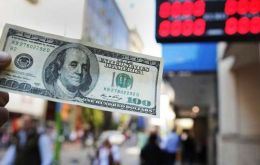
The Argentine Peso plummeted 15.6% to a new record on Thursday, and ended trading at 39.87 after having reached almost 42 Pesos to the US dollar in mid afternoon. This follows on the Wednesday which also witnessed the Argentine currency slide 7% to the greenback.
